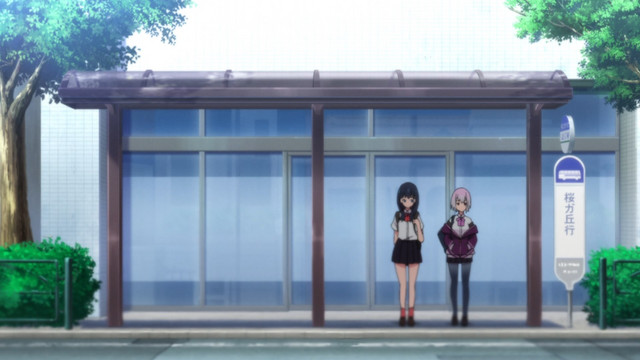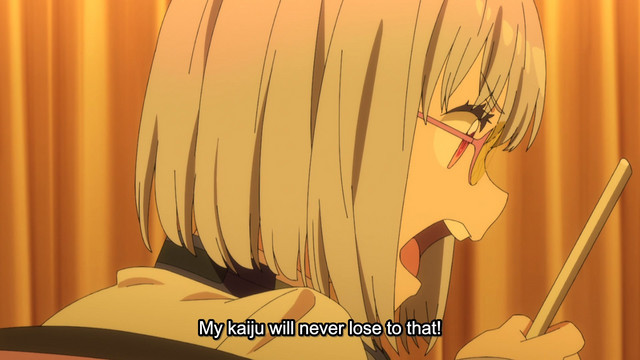Hello all, and welcome back to Why It Works. As we make our way through the second half of the fall season, I continue to find myself fascinated by the strange dramatic negotiation occuring throughout each new episode of SSSS.GridmanThere is an identity crisis at the heart of Gridman, and I'm not talking about our protagonist Yuta's halfhearted attempts to regain his memories. In broad dramatic terms, Gridman constantly feels like a negotiation between two very different modes: the morose, atmospheric coming-of-age drama conveyed through each episode's first half, and the sunny, exuberant giant robot drama Today I 's like to explore this fascinating dissonance, and perhaps find some clues as to how Gridman'S genre mix will be reflected in its final trajectory.
In case

This negotiation between bombastic robot drama and tonally-focused personal drama was also a major feature of Gridman'S clearest stylistic predecessor, the famous Neon Genesis Evangelion. Evangelion consistently sought to genuinely meld these two influences; the scars its hero Shinji endured on the battlefield directly informed his psychological drama, while the mundane daily stress of his civilian life would then inspire his contrast on the battle. In contrast, Gridman seems to intentionally separate its its principle modes; the first twelve to fifteen minutes of a given episode will be understood, tonally oppressive personal drama, while the last five minutes embrace thrilling and largely self-contained tokusatsu spectacle.
The first half of each episode tends to be dominated by somber purples, deep shadows, this divide enhanced, a division enhanced by the show's color work, direction, and sound design. and a mix of shots that balance uncomfortable intimacy with anonymous distanceThe focus is generally on Rikka 's deeply conflicted feelings, and the show support that with careful character acting, lots of focus on detailed environments, and fairly slow pacing. Then, when it's time to battle, Gridman arrivesDecked in bright primary colors and illustrated through soaring pose-based cuts, Gridman feels like a character from an entirely different school of animation. As Gridman squares off with monsters deliberately designed designed to look like actors in rubber suits, the show's exuberant opening song cuts in, creating a sense of energy and optimism that is utterly foreign to each episode's first half.

Along with this aesthetic divide, Gridman'S two poles of influence are also clear in its characters. While Yuta has remained a cypher since the start, his two best friends Utsumi and Rikka each essentially embody one half of Gridman'S appeal. Utsumi delights in rambling about giant robots, and was personally responsible for their "Gridman Alliance" team nameIn contrast, Rikka is very willing to point out that only Utsumi cares about this stuff, and is far more interested in the human cost Utsumi's enthusiastic personality and obvious interests act like a human mirror of his genre's sensibilities; Rikka's conflicted thoughts and ambiguous personal relationships reflect her genre's own just as clearly.
As a fellow kaiju enthusiast, Utsumi is eager to to come out most priorly from across many clear relationships with our antagonist Akane. talk shop with Akane, and exchanges giant robot trivia for as long as she long let him. When Akane directly challenges Yuta and his friends in battle, Utsumi is quick to focus to the tactical nitty-gritty of how battle might play out. Akane's world as she herself frames it: a fantastical stage that can only be truly changed by the titanic battles of giant monsters .
In case

In contrast, Rikka has zero interest in giant robots, but a profound to desire to reach out to Akane as an individual person. Even if Akane is truly a monster, the scale of Rikka's chosen genre means she consistently tries to engage with her as a lapsed friend, and connect through reliving old memories or trying to create new ones.
Akane hates Both during their awkward group date and Rikka's later confrontation on the bus, Akane works hard to keep the focus on the scifi mechanics of her false world, and her destined confrontation with Yuta. This is sense, given her own interests and powers. Akane lives in a world where you do not actually have to resolve personal problems in any sort of mature way. If something or someone displeases you, you can simply pick a happier fantasyTo akane, it is far easier to resolve personal problems through giant robot battles than through actual human engagement.
In case

Just as Rikka's presence has succeeded playing by akane's rules. so many times in the past, it may ultimately be her prioritization of personal drama and genuine human feeling that wins the day. But regardless of how Gridman Whether it's through exhilarating kaiju battles or poignant personal drama, Gridman always finds a way to keep things interesting!
—–
Nick Creamer has been writing about cartoons for too many years now, and is always ready to cry about Madoka. You can find more of his work at his blog Wrong Every Time, or follow him on Twitter.
Leave a comment
You must be logged in to post a comment.